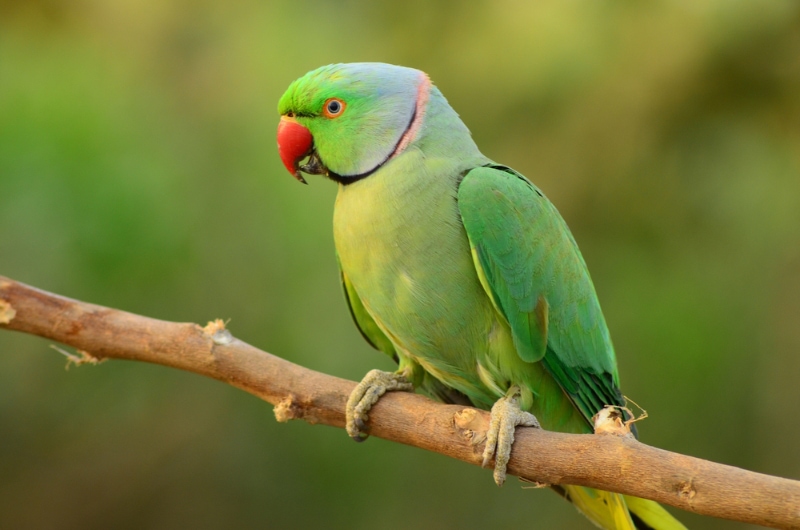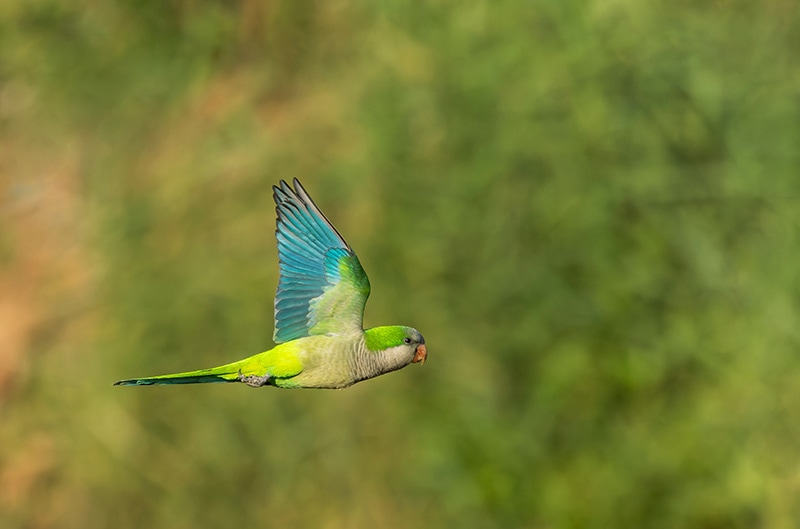How to Take Care of a Parakeet: 11 Vet Approved Tips

Updated on
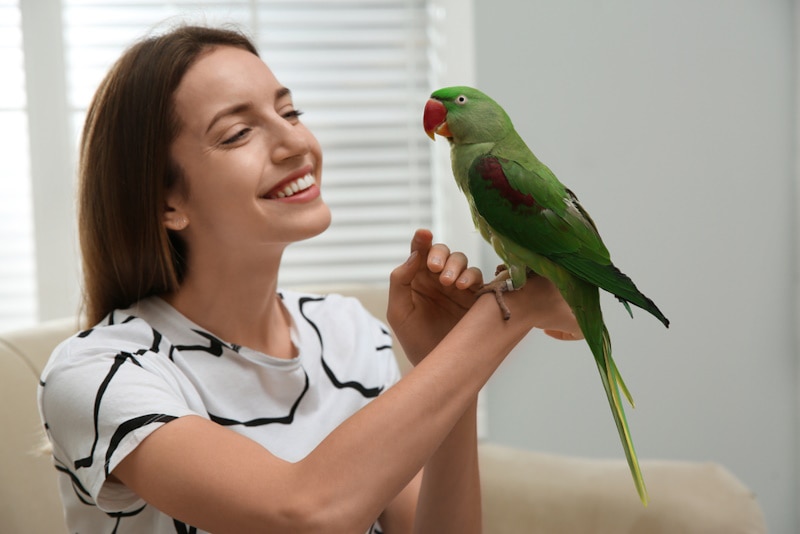
Click to Skip Ahead
Parakeets are friendly, sweet little birds. They are often described as ideal beginner birds because they are lower maintenance than larger parrot breeds. The most popular is the rose-ringed parakeet (Psittacula krameri), which we’ll be primarily discussing in this article. But even though parakeets are easier to care for than African grays and macaws, they do still require good, ongoing care. This includes regular cage cleaning, the provision of food and water, and enrichment, typically through regular handling and time out of the cage.
Considering they can live as long as 15 years in captivity, taking on a parakeet is a long-term commitment, and below, we have included 11 tips to help you take care of your pet parakeet.
Top 11 Tips to Take Care of a Parakeet
1. Get Your Parakeet a Friend
Parakeets are naturally social animals. In the wild, they live together in large flocks. As pets, they will form bonds with other animals and humans, but they prefer to be kept with other parakeets.
As such, it is recommended that you get two or even a small flock of parakeets. This means you will have more cleaning, and you will need a bigger cage. There are reports that parakeets kept as pairs will not form as close a bond with their humans, but they will naturally be happier and more fulfilled birds.
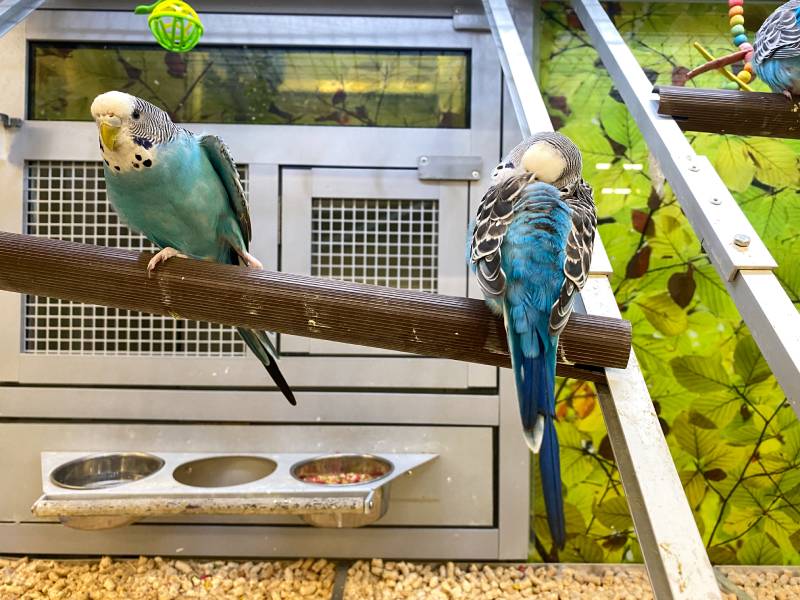
2. Get a Good Cage
Even if you let your parakeet out of their cage for several hours a day, they will spend most of their time in there, which means it is really important that you get a good cage. For two parakeets, the smallest recommended cage size is 18 x 18 x 18 inches. They should be able to spread their wings without touching the sides or any toys in the cage.
If you can provide more space, buy a bigger cage. Ensure the bars are not spaced too wide apart and that it is easy to get in to clean the cage out when required.
3. Provide Enrichment in the Cage
What goes in the cage is as important as the design of the cage itself. You will need food and water bowls as well as perches for your birds to sit on. At the bottom of the cage, you will likely want something to soak up urine and other messes, too.
Parakeets are playful little birds that need toys and other items in their cages. Offer an assortment of ropes, ladders, and other toys to keep them entertained.

4. Find the Best Spot for Your Parakeet
The placement of the cage is also important. Find a spot off the floor, otherwise, your parakeet may feel threatened whenever you walk past and will be at head height with any cats, dogs, and vacuum cleaners. It needs to be somewhere close to people so that they get used to you and feel like part of the family, making them easier to handle and tame. But do place it so that one side of the cage is against the wall. This will provide a safe place to retreat to.
Avoid putting the cage close to draughts. Avoid putting it too close to open windows, and don’t put it above radiators or other heat sources. Do not put it in the kitchen or anywhere else it might come into contact with smoke or noxious fumes.
5. Clean the Cage Frequently
Although they are cleaner than some birds, parakeets do still make a mess. They throw seed husks and bits of food around, and they poop pretty much anywhere. And while they aren’t one of the dustiest species, parakeets do still produce some dust. All of this needs cleaning regularly to ensure the health and happiness of your bird.
If your cage has a removable tray at the bottom, line this with an absorbent material. It will make cleaning easier and help trap any smells. You should also clean debris out of the cage every day or two and give it a thorough clean every week.

6. Let Them Out Daily
Parakeets need physical exercise and mental stimulation. No matter how large the cage and how many toys you provide, this means they will need time out of the cage. Time out of the cage will also make it easier for the bird to bond with their humans. It also allows you to clean the cage out without the worry of whether the bird is going to escape.
Aim to let your parakeet have at least 2 hours a day out of the cage, ideally every day, although if you do have to miss one day, it shouldn’t cause too much of a problem.
7. Secure the Room
When you do let your parakeet out, ensure the room is thoroughly secure. This means closing doors and windows to prevent your parakeet from escaping. Look for any other potential exits and make sure the room is safe for your bird. Ensure there are no open flames and that there are no other potential hazards. You may need to remove cats and dogs from the room to prevent any mishaps.
You should also let other people in the house know when you are letting the bird out. This prevents them from opening the door and creating an exit.

8. Handle Daily
Parakeets can be friendly birds that get along with all family members, but to achieve this, you do need to put in time and effort. The more often you handle your bird, the friendlier they will become, and the more they will enjoy spending time with you.
When you get a new bird, give them a few days to settle into their new cage and new location. Ensure the cage is close to you and the rest of the family. Your parakeet will get used to the sound of your voice and other sounds in the home. Once they have settled in, you can start to put your hand in the cage. Don’t expect them to jump on your palm the first day, but leave your hand in with a few seeds and other treats on your open palm. Keep doing this, and in time, the parakeet will investigate.
9. Find an Avian Vet
Avian vets have specialized training in dealing with birds. They are more likely to be able to recognize avian illnesses and problems specific to parakeets and other birds.
Avian vets are not as commonplace as general animal vets, but they do exist and can be found in most areas. It is worth looking around to find your nearest one before you bring your bird home.
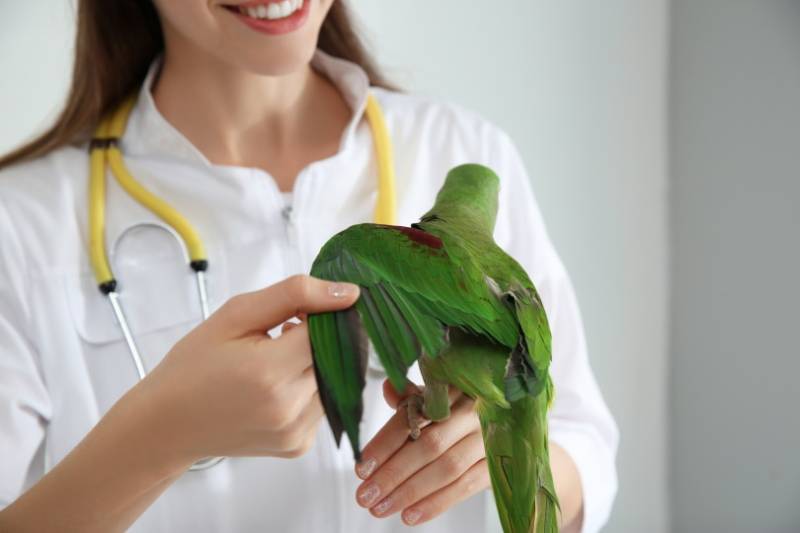
10. Choose a Good Food
As with any animal, good nutrition is vital to having a healthy and happy bird. Feed a diet that is made up primarily of good quality commercial food. Commercial foods should be pellet-based. Pellet foods are less messy, are fortified with vitamins and minerals, and prevent birds from picking out their favorite foods and leaving those they don’t like, which can prove expensive and may lead to deficiencies in certain vitamins.
11. Supplement with Fresh Food
As well as feeding commercial food, you can supplement this with fresh food. You can give approximately 25% of your bird’s diet as fresh food, which includes fruits, nuts, vegetables, and treats. This enables you to provide a greater variety of food, which not only retains your parakeet’s interest in what it is eating but also helps ensure a good variety of nutrients.
It also allows you to use treats for training. Parakeets are intelligent birds, and during your daily handling sessions, you can train them to perform some basic tricks. Tasty treats will help with training.

Frequently Asked Question
Are Parakeets Good Pets?
Parakeets make very good pets for the right owners. Although they are lower maintenance than a lot of larger birds, they do require daily attention and regular cleaning and maintenance. They also need a reasonably sized cage to ensure they have plenty of room to fly and exercise.
Parakeets are intelligent, sweet birds that can imitate a lot of sounds. They can also be trained, and once they know their humans, they will usually be happy to spend plenty of time with them.
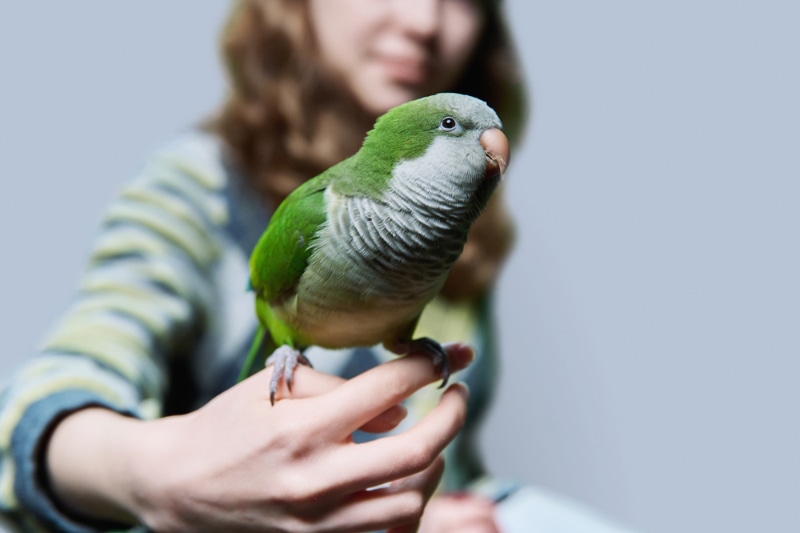
Are Parakeets Good First Birds?
Parakeets are described as being great first birds. They are more interactive than birds like finches, and some can develop extensive vocabularies consisting of hundreds of words. They do need regular handling and cleaning, but they are lower maintenance than species like African greys or macaws, which makes them popular as first birds.
Is It Better to Have Two Parakeets?
These social birds do better when kept as pairs or even small flocks. As such, it is better to keep at least two parakeets. You will have to buy a cage large enough for the number of birds you keep, and keeping multiple birds together means they may not form as close a bond with their owner, but you can still develop a strong relationship while also ensuring the birds are happy and enriched.
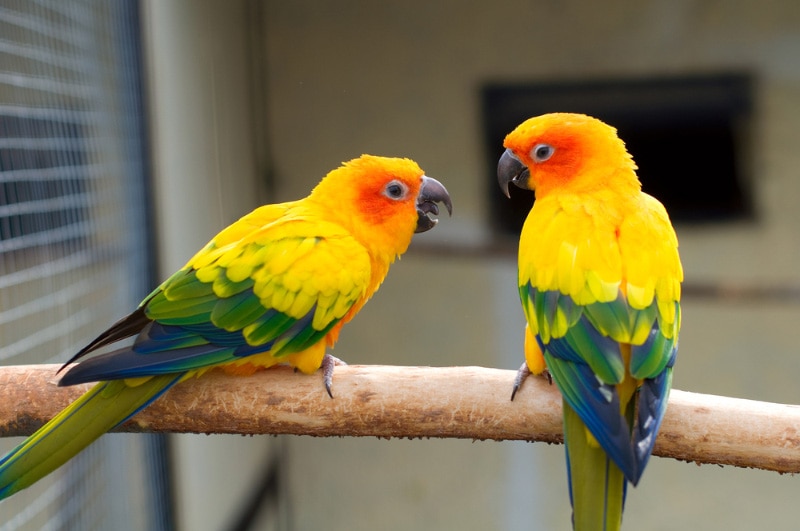
Should You Cover a Parakeet at Night?
You shouldn’t need to cover a parakeet at night as long as the cage is kept in a dark and secluded part of the house. If there is a lot of noise or lights are left on late, you can cover the cage but remove the cover in the morning.
Conclusion
Parakeets are popular pet birds and are often described as good first-time birds. They do require regular maintenance, daily handling, and plenty of time out of the cage. But, with regular handling, they form a strong bond with their owners, can be taught some basic commands, and can mimic many sounds.
Some parakeets can develop extensive vocabularies of human words. Provide plenty of space, ensure a good diet, and look for an avian specialist vet in your area to help ensure the best possible life for your new pet bird.
See also:
- Why Did My Parakeet Die Suddenly? 10 Vet Reviewed Reasons
- Do Parakeets Like to Be Held? Vet-Approved Facts & Explanation
Featured Image Credit: New Africa, Shutterstock




